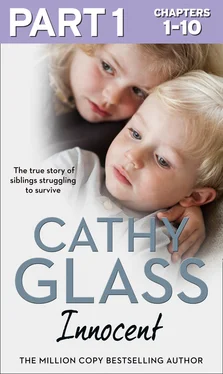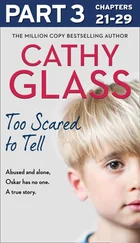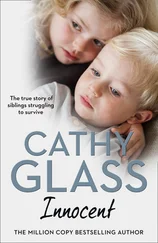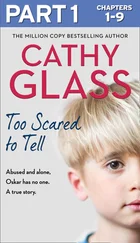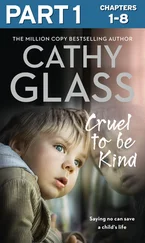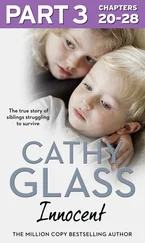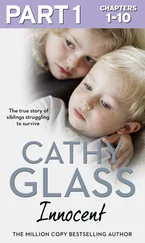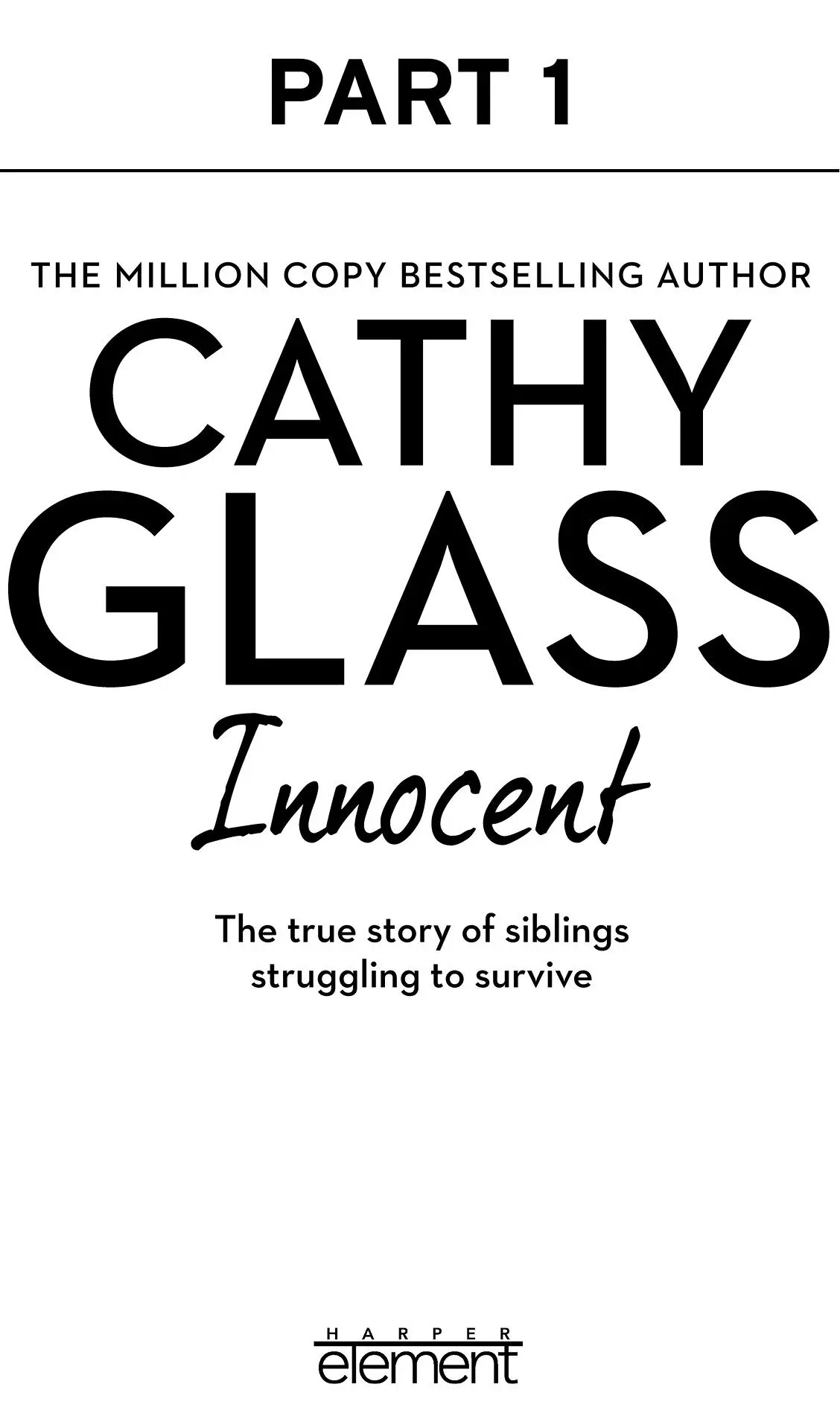
Certain details in this story, including names, places and dates, have been changed to protect the family’s privacy.
HarperElement
An imprint of HarperCollins Publishers
1 London Bridge Street
London SE1 9GF
www.harpercollins.co.uk
First published by HarperElement 2019
FIRST EDITION
Text © Cathy Glass 2019
Cover layout design © HarperCollins Publishers Ltd 2019
Cover photograph © Voisin/Phanie/Getty Images (stock photo posed by models)
A catalogue record of this book is available from the British Library
Cathy Glass asserts the moral right to be identified as the author of this work
All rights reserved under International and Pan-American Copyright Conventions. By payment of the required fees, you have been granted the nonexclusive, non-transferable right to access and read the text of this e-book on screen. No part of this text may be reproduced, transmitted, downloaded, decompiled, reverse engineered, or stored in or introduced into any information storage retrieval system, in any form or by any means, whether electronic or mechanical, now known or hereinafter invented, without the express written permission of HarperCollins e-books.
Find out about HarperCollins and the environment at
www.harpercollins.co.uk/green
Source ISBN: 9780008341985
Ebook Edition © September 2019 ISBN: 9780008353711
Version: 2019-06-03
1 Cover
2 Title Page
3 Copyright
4 Contents
5 Acknowledgements
6 Chapter One: Traumatized
7 Chapter Two: Chaos
8 Chapter Three: Disturbed Night
9 Chapter Four: Good Mother
10 Chapter Five: Distressing
11 Chapter Six: I Want Mummy
12 Chapter Seven: Sick
13 Chapter Eight: Need to Know?
14 Chapter Nine: Sick Again
15 Chapter Ten: Bonding
16 Moving Memoirs eNewsletter
17 About the Publisher
Landmarks CoverFrontmatterStart of Content
List of Pages v vi vii 1 2 3 4 5 6 7 8 9 10 11 12 13 14 15 16 17 18 19 20 21 22 23 24 252627282930313233343536373839404142434445464748495051525354555657585960616263646566676869707172737475767778798081828384858687888990919293949596979899100101102103104105106107108109110111
A big thank you to my family; my editors, Carolyn and Holly; my literary agent, Andrew; my UK publishers HarperCollins, and my overseas publishers who are now too numerous to list by name. Last, but definitely not least, a big thank you to my readers for your unfailing support and kind words. They are much appreciated.
Chapter One
Thank goodness I didn’t have to witness their anguish and upset, I thought. I was sure I wouldn’t have coped. It was bad enough knowing it was happening – two young children about to be taken from their parents and brought into care. During the twenty-five years I’d been fostering I’d seen a lot of changes, but the raw grief of a family torn apart didn’t get any easier. I could imagine the children screaming and crying and clinging to their distraught parents as they tried to say goodbye. My heart ached for them. I also had sympathy for the social worker who was doing a very difficult job. No one wants to take children from their parents, but sometimes there is no alternative if they are to be safe.
It was now nearly two o’clock in the afternoon and I was standing in what would shortly be the children’s bedroom. I could have put the cot in my room, but I was sure Kit, only eighteen months old, would be happier sleeping with his sister Molly, who was three and a half. Doubtless she too would find comfort in having her younger brother close. Fostering guidelines on bedroom sharing vary slightly from one local authority to another, but generally siblings of the opposite sex can share a bedroom up to the age of five.
Molly and Kit were coming to me as an emergency placement. Stevie, fifteen (whose story I told in Finding Stevie ), had left at the end of August and now, a few days later, at the start of September, I was preparing myself and the house for the arrival of these two little ones, who were certainly going to be distraught. Sometimes taking children into care can be done with the cooperation of their parents, voluntarily, which is known as ‘accommodated’ or a Section 20. It’s usually considered the better option, as the parents retain legal responsibility for their children and the process is less distressing for all involved. But that couldn’t happen here, so the social services had gone to court that morning to ask the judge for a care order to remove the children from home and bring them to me.
Edith, my supervising social worker, had telephoned at 11 a.m. to tell me to expect the children if the care order was granted. The reason for the social services’ application was that one of the children (she didn’t know which one) had suffered what was thought to be a non-accidental injury. That meant that someone – presumably one or both of the parents – had harmed the child. Apart from this and their ages, Edith didn’t have any more details. I would learn more when their social worker brought the children to me later today.
As soon as I’d finished speaking to Edith I’d gone into the loft and brought down all the early-years equipment I’d stored away there, including a cot, pushchair, car seats and boxes full of toys, all of which I’d wrapped in polythene to keep them clean after the last time I’d used them many years before. I’d struggled to get them down and to assemble the cot on my own, but my family were all out and I didn’t dare leave it until they returned in the evening. Adrian, aged twenty-four, and Lucy, twenty-two, were at work, and Paula, twenty, was at college. I was a single parent, my husband having run off with a younger work colleague when the children were little. Very upsetting at the time but history now.
Having made up the bed and cot with fresh linen, I set a toy box at the far end of the room and came out. Hopefully Molly and Kit’s parents would feel up to packing some of their children’s clothes and toys, as it would help them settle with me to have familiar things around them when everything else in their lives had changed.
Downstairs, I quickly made a sandwich lunch, which I ate at the table with my mobile phone beside me. I was expecting Edith or the children’s social worker to phone at any moment – as soon as the care order had been granted and they’d left court. Of course, there was a chance the order wouldn’t be granted. If so, then preparing the room would have all been for nothing. It had happened to me in the past – I’d been put on standby to receive a child or children, and plans had changed at the last minute, which is why foster carers have to be flexible. It’s unusual for a care order not to be granted, but what happens more often is that a relative steps in at the last minute to look after the children so they don’t have to go to a foster carer they don’t know.
I’d just finished eating my sandwich when my mobile rang.
‘Cathy Glass?’ a female voice asked.
‘Yes, speaking.’ I could hear traffic noise in the background.
‘It’s Tess Baldwin, social worker for Molly and Kit. I believe Edith spoke to you this morning and you’re expecting Kit and Molly.’
‘Yes, that’s right. Their room is ready.’
‘Good. We’re on our way to collect them. We should be with you by five o’clock. The children have never been away from home before so are likely to be very upset.’
Читать дальше
